In this article, we will be discussing soil conditioners and their use in gardens, including container gardening.
Soil conditioners are feeds used to improve the quality of your soils, especially in the ground and in raised beds. It is a product which is added to soil or compost to improve its fertility (add more nutrients) and to open the structure. It will make poor soils and composts much more active especially in raised beds.

There is no doubt the best soil conditioner of all to use in gardening is those based on animal manures. Its composition depends on the animal the waste originates from, but whatever you can find, use it because it will improve the conditions like nothing else.
Animals tend to live and defecate onto bedding, which will eventually rot down to form humus, whilst their waste provided not only the fuel for the rotting process but also give its nutrients.
The resulting manure makes a home to billions of living organisms, which with their activities make nutrients that become available to the plant.
THE BIGGEST PROBLEM IS GETTING ENOUGH MANURE
The biggest problem is acquiring enough manure as if you have a large enough supply of manure then you would not need to rely on other fertilizers. This is only possible for those who live on a farm and you rear plenty of livestock.
For many others, it is a small dream. All animal manure contains the nitrogen, phosphorous and potassium, plus some trace elements that plants need. The biggest problem is that the nutrients contents are lower than other fertilizers and that is why a large volume is required.
Some animals bed on straw, whilst others rests on wood shavings. Both are good bedding and manure making materials. Straw makes the best manure, whilst wood shavings take longer to rot down.
No matter which animal waste product you get your hands on, they must be compostable in a pile for at least six months or preferably for a year. This timeframe is required to allow the manure to cool down and to breakdown any toxins, pesticides and weed seeds that may exist.
In winter, you need to cover the heap with polythene to stop the nutrients from leaching out and being lost.
There are 5 types of manure that can be used in the garden.
HORSE MANURE
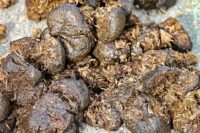
This is the hottest of all manures, so will take at least a year in order to cool it down, otherwise, the young roots of plants can be scorched.
It is an excellent manure and in some areas, it is easiest than other types to come by. A typical nutrient content of horse manure is 0.6% nitrogen, 0.6% phosphorous and 0.4% potassium.
CHICKEN MANURE
This is a very powerful manure that can be dried and used as a fertilizer, especially if it is mixed with straw bedding. This can be readily bought in shops as a dried, pelleted producer. You can make your own but you need to stack it for a year or so if you have chickens.
You can mix into a compost heap, where it will help to rot down greens and brown down quickly. This is useful if you have a large number of chickens for their eggs, as it will provide a constant source of manure. A typical nutrient values of chicken manure us 1.5% nitrogen, 1.5% phosphorous and 0.5% potassium.
SHEEP MANURE
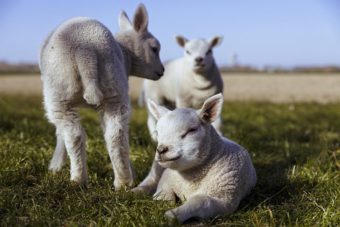
This is not easily found unlike the other types of manure because the animals are usually kept inside in winter.
However, if you live near a sheep farm and you do not mind picking the droppings up, then it is worthwhile asking the farmer if you can have some.
It makes an ideal liquid fertiliser and has a typical composition of 0.8% nitrogen, 0.4% phosphorous and 0.5% potassium.
PIG MANURE
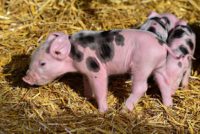
Pig droppings are somewhat wet and cold, so it is not the first choice for manure. It is not the right choice for heavy soils but it is ideal for light soils.
If you can get hold of it, it is still worthwhile getting your hands on, as something is better than nothing. You need to stack it for a year before you can use it. Typical nutrients contents are 0.6% nitrogen, 0.4% phosphorous, 0.6% potassium.
FARMYARD MANURE
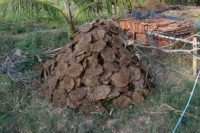
This is made out of cowpats and is one of the best types of manures to use. It does not get as hot as horse manure but it will compost down to make a light, warm soil conditioner that is easy to use. It has a typical nutrient content of 0.6% nitrogen, 0.3% phosphorous and 0.5% potassium.
OTHER TYPES OF MANURE
If you can get your hand on other types of animal waste, then they can be used as nothing should go to waste. You can use pigeon poo from pigeon fanciers, goat poo from goat farmers, rabbit poo from rabbit keepers, and even llama poo from llama keepers.
All of these will be too pleased to get rid of this unwanted product, even in small quantities. This can be used as a compost activator but you must be careful when using them as they can be very potent. This is especially true for manures made from bird poo.
If animal manures are unavailable, you will have to resort to alternatives, where most can be readily bought. Most of them have negligible nutrient value but are often used to improve the structure of the soils. They tend to be more expensive but they are a good alternative, remember adding any soil condition is better than adding nothing at all.
SPENT MUSHROOM COMPOST
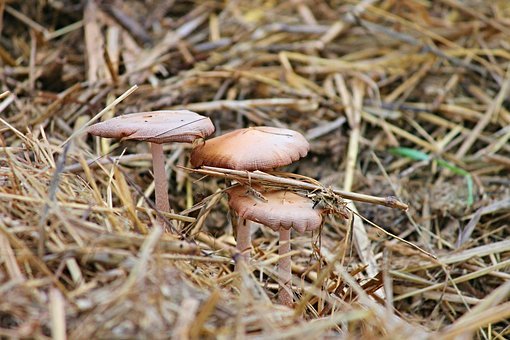
This is a waste product from the mushroom industry and consist of rotted horse manure mixed with some peat or coir and then some lime is added. The biggest problem is that it is naturally alkaline and not suitable for lime hating plants or vegetables. Great as a soil condition for vegetable and those who have chalky soils.
COCOA SHELL
This is a waste product from chocolate factories and consist of the outer husk of the cocoa beans. It is relatively high in nitrogen, where it makes an excellent weed suppressed mulch and it can deter slugs and snails from eating your plants. It can be dug in as well bit it is naturally acidic and so will suit ericaceous plants very well.
SHREDDED PRUNINGS
This is the material made when you shred your shrubs, trees and perennials, It has similar properties to bark so do not dig it in. It makes a great mulch when mixed with old compost from containers.
SPENT HOPS
This is a waste product from the beer brewing industry. It is a difficult product to come by as many brewers sell it under contract. If you can get it, it will make an excellent mulch or it can be composted and then dug in.
SEAWEED
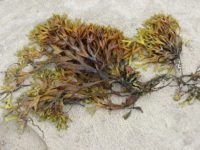
This is a great product for those who live near the sea or beach. You can use it straight from the beach in the garden or it can be composted before it is used. It contains a chemical that helps bind soil particles together, thus improving drainage and aeration. It also has a good range of trace elements.
COMPACT BARK
This is from the waste of the forestry industry. It is widely used as a mulching material. Do not dig it into the ground as this will cause a nitrogen deficiency due to the high carbon content that will be introduced. It is best left on top until it gradually decomposes as is naturally worked into the surface.
COMPOSTED STRAW
This is when straw is composted with liquid cow slurry to make a very good soil conditioner. Has many uses in the garden with some valuable nutrients.
LEAF MOULD
This is one of the finest of all soil conditions, where it is best-used om the top 10mm in the bed or ground.
In fact, leaf mould was the go-to basic organic material in gardening, until multipurpose compost came along.
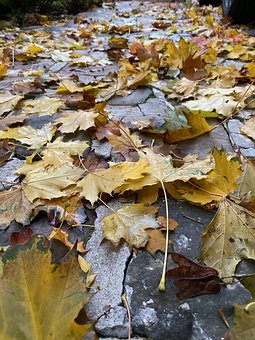
It rots down in a slightly different way from other garden soil conditioners as it is made by the action of fungi and not bacteria and it takes a long time to make. It takes a year to make and you need a good source of leaves to do so (often collected from your back yard).
The process does not require heat to do their work, so the leaves can be housed in a very simple, wire netting container.
All you need to do is place the leaves in and tread them down as you fill it up. They need a little water in dry weather but in general, they can be left onto their device.
If you are wanting to do this on a smaller scale, you can fill black bin liners with leaves and then punch holes at the side and leave them to carry out the leaf mould producing process. You can then sieve it and then add nutrients into it and it will make a great container addition.
LOOK OUT FOR OTHER ORGANIC SOURCES
If you look around you can find many sources of organic matter made from organic waste, this includes fruit pulp from cafes, tea and coffee grounds from cafes, potato waste from crisp factories, etc.
They may be available locally and not on a national basis. Any form of organic waste can be used, as long as it does not contain contaminants or pesticides.
It will probably need to be composted first. If any doubt to its suitability of the organic waste, use it in a small area to see how plants in that area do. If it dies and obviously not doing well, do not use that waste ever again.
WHAT SOIL CONDITION IS THE BEST?
In this article, all sorts of soil conditioners can be used in the garden, where manure is the preferred option due to its nutrient value. If you cannot get hold of manure then there is a whole array of alternatives that can be used. Although they have little nutrients they will still improve the structure of the soil.
The waste many food industries produced can be used in the garden, which is not only environmentally friendly but puts good use to something that would have gone naturally to waste. This can also be more economical than other types of fertiliser.
If you have any comments or questions that you wish to raise, please do so in the comment box below.
Get looking into soil conditioners.

Help there, my garden have been performing poorly for a while now and it’s sad seeing some of my favourite flowers die without having the knowledge of how i could help it. I have been getting meaning to get such manure of my soil but i really didn’t know they can boost the soil this much. I would get some chicken manure soon, it’s the closest to where i live and way to access. Cheers
Hi Justin
I am say if the product is available to you locally, why not use it in the garden where it can benefit them greatly. I am glad you have thought about chicken manure, a product that is readily available.
Thanks
Antonio
I have heard of soil conditioners before but I never really thought of the to be able to improve my soil so quick and for very little cost as well. I am very eager to give it a try as you have explained all about it too. I think it will be really nice for me to give it a try on my soil at home. Chicken manure shouldn’t be so hard to get.
Hi Henderson
My pleasure in writing this article and for you reading it. I am always glad to help people to become more aware of the products available naturally to them and chicken manure is such a great soil additive.
Thanks
Antonio
I knew about several of these types of fertilizers and composting materials, but definitely not all. This is a really extensive list of soil conditioners and I thank you for that. I really like the idea of using the waste products from the food industry, though. It is sad how much waste there is that really doesn’t go to any good use when it could be used to help grow even more food! Thanks for this post!
Hi Steve
As indicated in the article, it is best to know what is available locally as this can be readily available to the gardener. They are cheap and will help the gardener to improve their soil structure no end, especially if you use raised beds. So many choices and I recommend them.
Thanks
Antonio